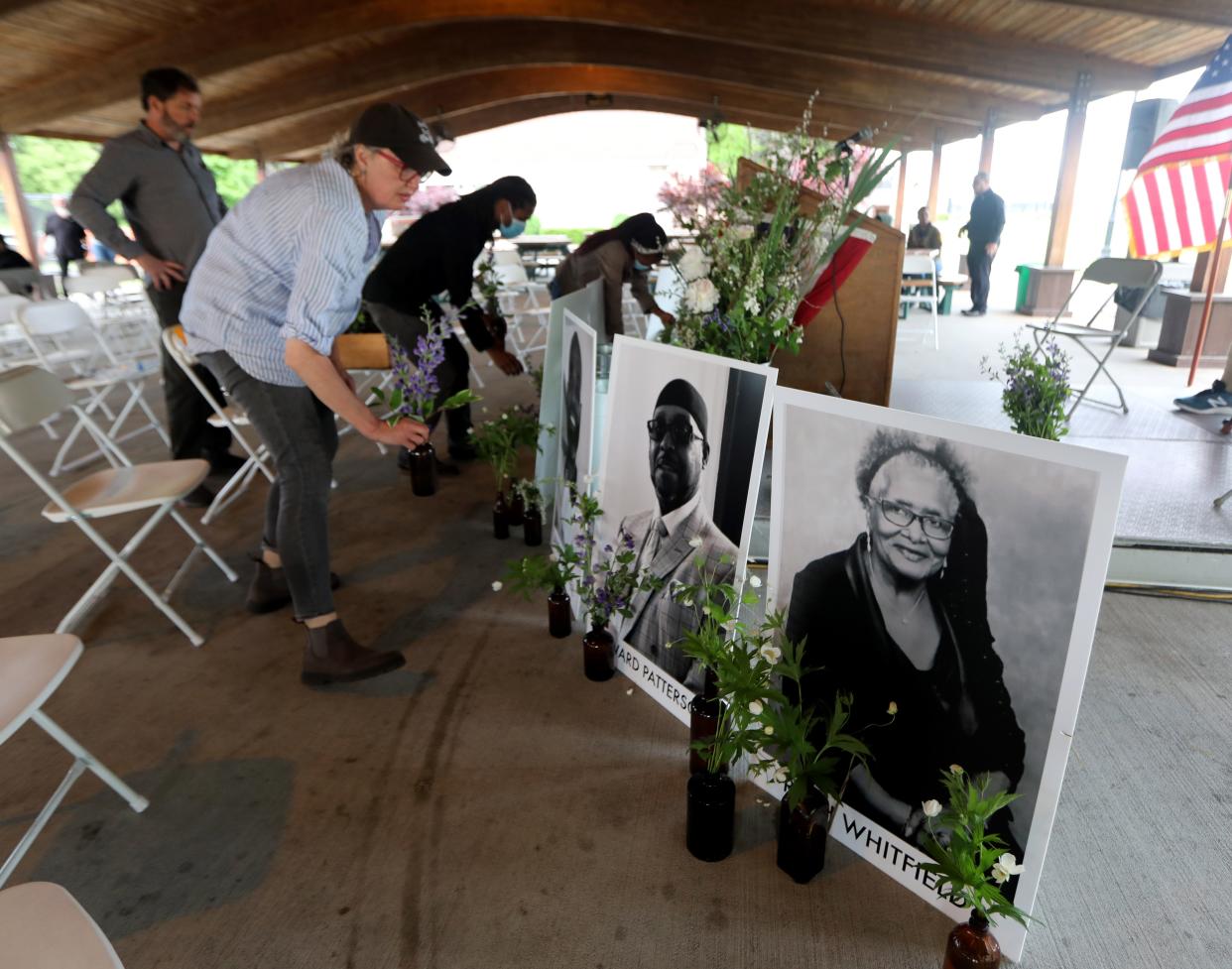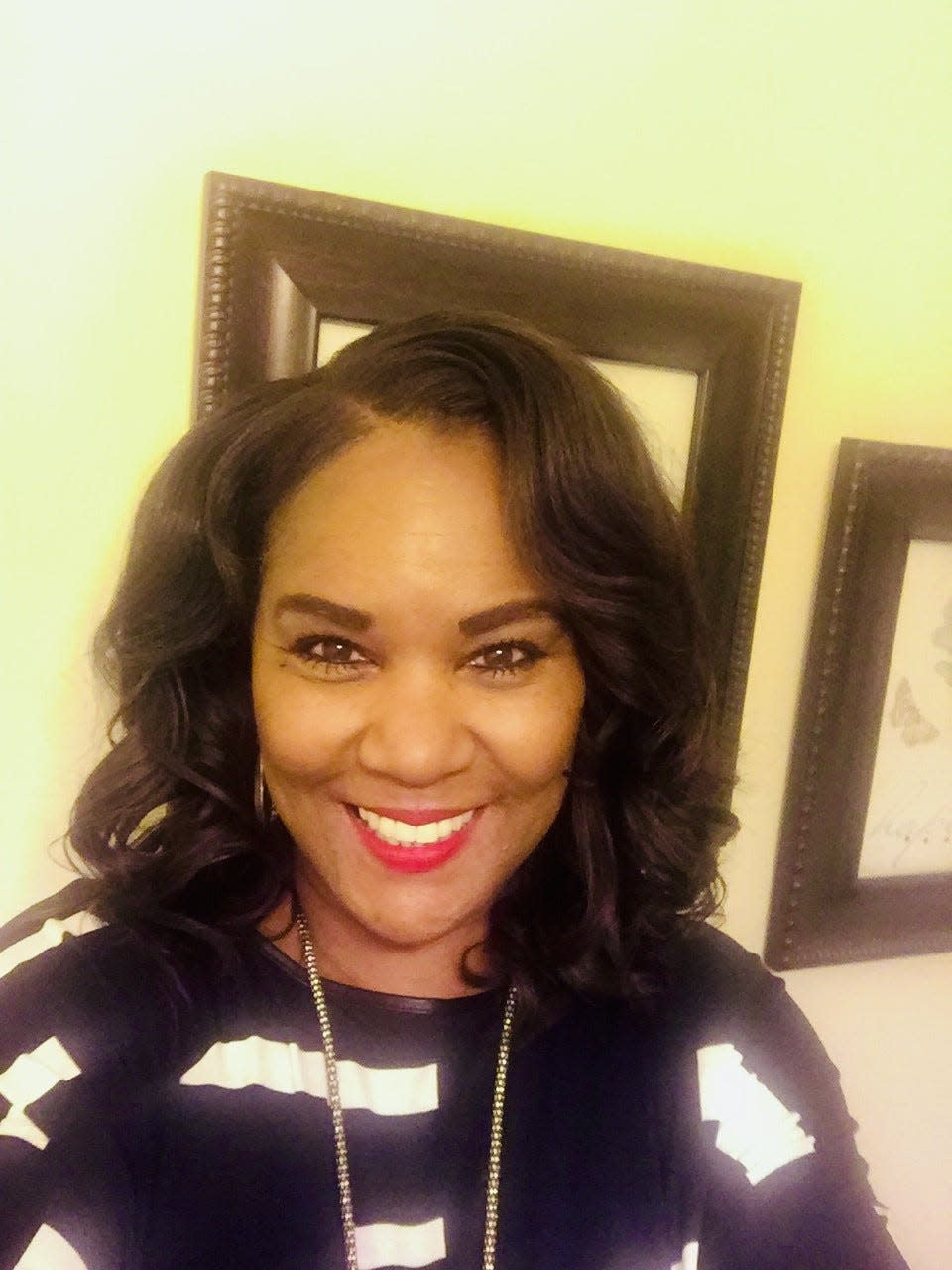Harris: The troubling rise of hate, violence and extremism in America can be stopped

- Oops!Something went wrong.Please try again later.
Dr. Dana Harris is a retired administrator with the Richmond County Public Schools.
Why is there so much hatred in the U.S.?
It is becoming more prevalent and appearing in increasingly blatant forms more than ever.
We are witnessing more hostility, resentment and bitterness as protests and demonstrations heighten in America – the impact of the COVID-19 pandemic which was the "great equalizer" that paralyzed the world, family estrangement, road rage, violent air rage on flights, the loss of trust in government, irresponsible elected officials, police reform, gun violence, political polarization and the storming of the U.S. Capitol on January 6 that exposed an alarming reality that extremist leaders can mobilize large groups of Americans to use force and intimidation to impose their political will.
I could go on, but you get the point. There is compelling evidence suggesting Americans are getting angrier and more aggressive even outside the sphere of politics. The sense of individual security and well-being that millions take for granted has been compromised by a wave of senseless acts of hate, each more horrific than the preceding one.
More from Dana Harris: A Mother’s Day tribute; to those who go above and beyond for us
We have become more demanding, more defensive and more intolerant. This mental venom is contaminating our spirit, poisoning our soul and seeping into all the relationships that surround us. We see evidence of it every day on the television screen, in news and current affairs broadcasts and even in our own neighborhoods. These images have even spilled over to the internet. What is even more disheartening is that an overwhelming majority of us are growing numb to the suffering, the loss, the indignity, done to our brothers and sisters.
Democracy in the United State is under threat from a hard right, anti-democratic mass movement that has brought hate and radical extremist into the mainstream, threatening the fabric of inclusive, diverse democracy.
Over the past 20 years, the number of hate groups in the United States increased by over 100%. Though the number of hate groups dipped during the end of Barack Obama’s first presidential term, they rose sharply in the middle of his second term and continued to rise during Donald Trump’s presidential term.
Hate crimes were over 200% higher in places where Trump campaigned in 2016. Prior to the pandemic, hate crimes involving physical violence – e.g., intimidation, assault, and homicide – had reached a 16-year high.
Hate crimes against the Latinx community surged by more than 50%. Further, anti-Black hate crimes made up approximately 47% of all race-or ethnicity-based hate crimes even though the minority community only comprises 13% of the population. Additionally, Muslim and Jewish Americans are also experiencing disproportionate rates of interpersonal violence daily.
More From Dana Harris: The power of humanity, compassion and unity during these times of perpetual uncertainty
So, what will it take to address these matters? Primarily, we should find ways to channel whatever anger we feel into something useful, something solution-oriented and beneficial to the community at large.
It is urgent for policymakers to act, to defend and strengthen our democratic institutions, and to commit to holistic, long-term initiatives to counter racism, anti-government extremism and hate groups in America.
We must pursue legislation to prosecute hate crimes, prohibit racial and religious profiling, prevent perpetrators of white supremacist violence from arming themselves and designate lynching as a federal hate crime more effectively.
We need to advance the essential work of rectifying the ills of economic, social and structural disparities. This means ensuring access to fundamental services such as health care, domestic violence and mental health services.
The benefits of instituting evidence-informed policies are manifold. In doing so, we invest in the cost-effective strategy of prevention, improve the plight of Americans across the country, and save lives. Every citizen deserves to be able to participate in our democracy and civic discourse without fear, intimidation, or barriers.

Disinformation and conspiracy theories are galvanizing attacks on democracy and government institutions and can lead to ideologically-motivated violence. Looking back at the moments, policy and culture, it is high time we move the needle towards change.
We must stand up and speak out. And if our elected officials deny the problem, and refuse to act, then we must take on the responsibility of reform, from the bottom up with special attention at the ballot box.
We all have a deep responsibility to be a part of the solution. We must not emphatically sanitize the pain of those caught in the bind of oppression but celebrate the strength of the human spirit and go beyond the role of victim and victimizer. In doing so, we may inspire others to do likewise in the struggle against the hate, violence, disparities and biases we face day after day.
This article originally appeared on Augusta Chronicle: Harris: We must do more to combat hate and extremist violence

